Los Angeles Film Festival: Spanish for “The Film Festival of Angels.”
Saturday, June 15:
I pull into Parking Garage B at LA Live, barely able to see in front of me. This wasn’t the world-famous LA smog, this was rather the side effect of having spent the previous several days and nights on the East Coast at my high school reunion. I’d plugged myself into an IV drip of caffeine and sugar, but they had not yet greased my gears into full functionality.
I had bought a hard ticket to my first day’s films. Although I had a press pass, I wasn’t sure I’d be able to obtain one: I was only going to be able to attend a few days of the festival at best, and Movie Mezzanine has a staff replete with talented hard-working writers that had more time to spend at screenings than myself. However, through the grace of God, the LA Film Fest, and our Movie Mezzanine founder, Samwise Fragoso, I would be passed.
In order to make myself the most stereotypical man possible, I decided to not ask any directions from anyone, preferring to just mill about aimlessly until I found where I needed to be. I did not know where the lines were, where to pick up a press pass, or (most importantly) where the open bar was. Luckily, LA Film Fest has a dedicated troop of kind, smart, and insanely good-looking volunteers who looked upon my lost-puppy-dog eyes, felt incredible pity, and approached me with their generous gift of knowledge.
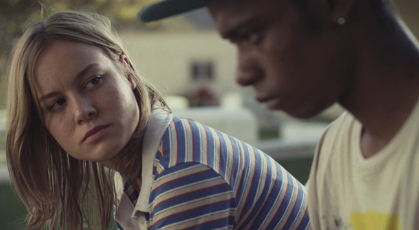 I found my way to the line for my first film, Destin Cretton’s Short Term 12, about which I’d heard no shortage of good things. I sat dazed in line, until through divine intervention, Manny Lozano from Veryaware recognized me from my Twitter photo (hey Ma, I made it!). He gave me the rundown on everything I’d need, and he told me where to go pick up my press pass as he’d hold my place in line for me. I found myself freed to run across the street to the Marriott, and, after being confused for seemingly hours by their never-ending series of hallways, escalators, and elevators, found my destination. I adorned my neck with my critical equivalent of a rapper’s bling, and strapped in next to Mr. Lozano and the delightful Allison Loring of Filmschoolrejects for the film.
I found my way to the line for my first film, Destin Cretton’s Short Term 12, about which I’d heard no shortage of good things. I sat dazed in line, until through divine intervention, Manny Lozano from Veryaware recognized me from my Twitter photo (hey Ma, I made it!). He gave me the rundown on everything I’d need, and he told me where to go pick up my press pass as he’d hold my place in line for me. I found myself freed to run across the street to the Marriott, and, after being confused for seemingly hours by their never-ending series of hallways, escalators, and elevators, found my destination. I adorned my neck with my critical equivalent of a rapper’s bling, and strapped in next to Mr. Lozano and the delightful Allison Loring of Filmschoolrejects for the film.
Short Term 12 is delightful. If I were to describe to you the plot for the film– which revolves around a group of young people who help run a center for at-risk teens– you might expect a Degrassi-esque melodrama, full of tidy lessons learned, obstacles fully overcome, and so forth. Luckily, this film defies any description or expectation; the character building is delicate and sharp, and the performances from top to bottom are heartfelt. For those of you who prefer something lighter and funnier than the plot description seems to detail, take comfort– Short Term 12 also has more laughs within than the majority of the studio comedies released this year. It’s hilarious, it’s sad, it’s anger-inducing, it’s warm. Brie Larson, so good in everything to date, gives a star performance here, and supporting turns by John Gallagher Jr., Kaitlyn Dever, and Keith Stanfield help round out my favorite cast in my favorite film of the festival.
Afterward, I meet fellow Mezzanine staffers Christopher Runyon and Kristen Sales. Christopher is celebrating his 19th birthday the way any 19-year-old would: by attending the David Lowery-helmed independent Western, Ain’t Them Bodies Saints.
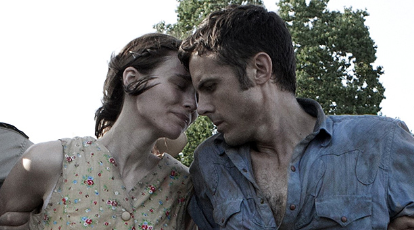 Ain’t Them Bodies Saints follows Casey Affleck and Rooney Mara as a law-breaking couple who gets into a shoot-out with the police early on. After Mara shoots one of the officers (Ben Foster), Affleck decides he’ll take the rap and serve the time, in order to allow Mara to birth their unborn child. Years later, Affleck escapes, and the film deals with the choices we make and how they affect us long after we make them. I struggled at times with the stars of the film: Mara isn’t altogether convincing as a Texas homestead-style mother, but she at least is pretty good at suggesting depth below the surface during the countless quiet scenes. Affleck, however, is not: the blankness of his gaze, so incredibly off-putting in the best way in Andrew Dominik’s The Assassination of Jesse James…, doesn’t serve the character here.
Ain’t Them Bodies Saints follows Casey Affleck and Rooney Mara as a law-breaking couple who gets into a shoot-out with the police early on. After Mara shoots one of the officers (Ben Foster), Affleck decides he’ll take the rap and serve the time, in order to allow Mara to birth their unborn child. Years later, Affleck escapes, and the film deals with the choices we make and how they affect us long after we make them. I struggled at times with the stars of the film: Mara isn’t altogether convincing as a Texas homestead-style mother, but she at least is pretty good at suggesting depth below the surface during the countless quiet scenes. Affleck, however, is not: the blankness of his gaze, so incredibly off-putting in the best way in Andrew Dominik’s The Assassination of Jesse James…, doesn’t serve the character here.
The role seems to call for something more brooding and charismatic, and that’s sadly just not Affleck’s forte. While the movie as a whole didn’t blow me away, two elements did: Ben Foster is simply terrific as the policeman, stealing every scene he’s in, and the original score by Daniel Hart is one of my favorite of the year. Proof positive that more cinematic scores need to employ the art of hand-clapping.
A Q&A with Rooney Mara and Casey Affleck follows. Kristen and I debate Affleck’s height, and Google verifies that I win (5’9, allegedly). Christopher gets to go home afterward and tell his friends he was with Rooney Mara and Casey Affleck for his 19th birthday party. Boom.
Monday June 17:
Fearing traffic (I live in Santa Monica), I get to LA Live roughly a billion years before the Fruitvale Station Los Angeles premiere. Steve Greene of Indiewire suggests to me that I attend their Indiewire Influencer panel while I wait, and I oblige. A number of fascinating individuals discuss at length the future of cinema, the Lucas/Spielberg quotes about where the industry is headed, and what new technology can bring to the artform. I sat riveted by these forward-thinkers as they debated and actively engaged each other: this wasn’t just some bullshit groupthink session, these were all strong-minded individuals with respectful different approaches to questions. My favorite was Emily Best, the founder and CEO of Seed&Spark, which allows filmmakers to crowdfund, distribute, and stream their films online. She gave a series of feisty and intelligent retorts that had me rocking in my seat like an old lady fanning herself at church. Her responses made me immediately seek out her site and bookmark it on my computer. Do yourself a favor and go see what’s happening at seedandspark.com. I hope that Indiewire continues these Influencer panels, as it’s inspiring from the perspective of someone who would love to create independent cinema one day.
Afterward, I waltz past the red carpet into LA Live’s premiere theater to await Fruitvale Station. My phone battery is dying, and I have 75 minutes until the film starts: again, the poorest of planning on my part. Take my eyes, but not my iPhone. Soon, people begin pouring in. Confession: I am the type of person far more likely to “geek out” over the lesser-recognized actors than over the A-listers. Thus, when Emayatzy Corinealdi, so brilliant in Ava DuVernay’s fantastic Middle of Nowhere last year (my favorite performance by a leading actress in 2012), sat down right behind my left shoulder, it was all I could do to not stare. I’m pretty sure her date caught me staring a number of times, and I’d like to publicly apologize if he or she are reading this. I will not, however, apologize for staring when Forest Whitaker entered, approached Sidney Poitier, and then continued to embrace ach other. The crowd broke into applause, myself among them, because frankly, I’d applaud if I saw Sidney Poitier emerge from a bathroom stall, much less hug another brilliant actor.
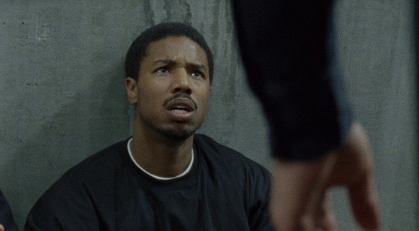 Fruitvale Station is unquestionably the type of film people are going to be talking about. As a first feature for writer/director Ryan Coogler, it’s pretty remarkable. As a star-making vehicle for Michael B. Jordan, it’s a slam dunk: this young man’s potential as an actor is limitless. When asked to compare him to other young actors, I find myself drawn to names like Tom Cruise and Will Smith. An open face with endless charisma, he can switch from making you laugh to breaking your heart in a split second with grace and finesse. This seems like hyperbole. It’s not. The film itself strays occasionally into what I call Martyr Syndrome, in which both the characters and the camera seem to sense that the lead character will be dead soon, so every parting moment and every confession of love is delivered with a certain somber air. While the heavyhandedness may affect the overall emotional resonance, it doesn’t affect the anger it inspires regarding the criminal act that took place, nor does it affect my admiration for the terrific work done by Coogler, Jordan, Melonie Diaz, and Octavia Spencer. This is an issue film, an important story well-told, and an actor’s paradise.
Fruitvale Station is unquestionably the type of film people are going to be talking about. As a first feature for writer/director Ryan Coogler, it’s pretty remarkable. As a star-making vehicle for Michael B. Jordan, it’s a slam dunk: this young man’s potential as an actor is limitless. When asked to compare him to other young actors, I find myself drawn to names like Tom Cruise and Will Smith. An open face with endless charisma, he can switch from making you laugh to breaking your heart in a split second with grace and finesse. This seems like hyperbole. It’s not. The film itself strays occasionally into what I call Martyr Syndrome, in which both the characters and the camera seem to sense that the lead character will be dead soon, so every parting moment and every confession of love is delivered with a certain somber air. While the heavyhandedness may affect the overall emotional resonance, it doesn’t affect the anger it inspires regarding the criminal act that took place, nor does it affect my admiration for the terrific work done by Coogler, Jordan, Melonie Diaz, and Octavia Spencer. This is an issue film, an important story well-told, and an actor’s paradise.
While I hate to be that guy that brings up the word “Oscar” (the film and its issues should be able to be discussed without mentioning its inevitable involvement with awards season), the film’s cast and creative team were so charming, giving, and humble in the Q&A that it’s impossible to envision them not slaying on the awards circuit. Octavia Spencer in particular shone– I considered going straight from the screening to Vegas and betting on her getting at least a nomination.
Since Fruitvale Station began roughly half an hour late– Christopher Runyon was as disgruntled as any 19-year-old sitting in the presence of Sidney Poitier could possibly be– I felt I was doomed to miss the screening of The Spectacular Now happening immediately after. However, I was saved once again by Manny Lozano, who texted me that he’d save me a seat. I sprint across LA Live, the Chariots of Fire song playing in my head, and hop into a seat a split second before the film begins.
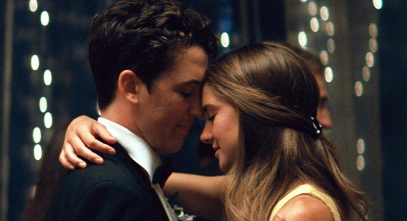 The Spectacular Now is a coming-of-age story in the vein of John Hughes, set in modern-day Athens, Georgia, yet it feels timeless. We follow Sutter (Miles Teller), the perpetually drunk fast-talking class clown, as he stumbles– literally– into the life of Aimee (Shailene Woodley), the unapologetically reserved nerdy girl. We watch them grow together, and while the plot seems wildly simplistic, its straight-forward execution allows for lovely emotional complications. Teller and Woodley peel back the layers, nakedly permitting us to peer into the soul of their character.
The Spectacular Now is a coming-of-age story in the vein of John Hughes, set in modern-day Athens, Georgia, yet it feels timeless. We follow Sutter (Miles Teller), the perpetually drunk fast-talking class clown, as he stumbles– literally– into the life of Aimee (Shailene Woodley), the unapologetically reserved nerdy girl. We watch them grow together, and while the plot seems wildly simplistic, its straight-forward execution allows for lovely emotional complications. Teller and Woodley peel back the layers, nakedly permitting us to peer into the soul of their character.
Supporting turns by Brie Larson, Kyle Chandler, and Mary Elizabeth Winstead provide us with the fragmented context for Sutter’s personality. This isn’t the type of film likely to bowl you over as you sit in the theater; it’s the type to bowl you over when you randomly think about it days later. If James Ponsoldt and the writing team of Neustadter/Weber set out to create a Hughes-esque film for today’s younger generation… they haven’t quite hit that level of home run, but good heavens, it’s a standing triple.
Thursday June 20:
As someone who selected Drive as my favorite film of 2011, I wasn’t about to let a series of pans from Cannes halt my excitement for Only God Forgives, the next Nicolas Winding Refn/Ryan Gosling collaboration. However, my excitement would have to wait, as I once again arrive needlessly early (LA traffic: you’re either 45 minutes late or 90 minutes early, no in-between). Luckily, the delightful Kristen Sales rolled through and informed me of the wonders of the media tent’s open bar. Serves me right for not reading all of the literature handed to me more carefully, as I missed my two favorite words in the English language when paired together: “Open” and “bar.” We stroll in, the bartender serves us two Stellas. Our conversation went as follows:
Bartender: “There you are! And keep the glasses!”
Me: “Huh?”
Bartender: “Keep the Stella glasses! They’re free!”
Me: “Well, I’ll be damned! I shall!”
Bartender: “Hey… want a second Stella glass?”
Me: “I’m only drinking one.”
Bartender: “No… do you just want a second glass? For the hell of it?”
Me: “I’M NOT MADE OF STONE, LADY!”
Thank the Lord Sales brought a big ol’ bag that we could carefully cram all of our glasses into. We sat in the super-low and super-weird chairs provided for us, partook in the open bar, and headed towards the theater.
Before Only God Forgives begins, Nicolas Winding Refn comes out and informs us that if Drive was really good coke, Only God Forgives is supposed to be the type of acid where you become one with the chair. I’ve never dropped acid before (contrary to what others may tell you), but his description is spot-on. Not unlike Refn’s Valhalla Rising before it, Only God Forgives is more about sensory immersion than about character-building or strict storytelling. Though “follow” is too strong a word, we follow Julian (Ryan Gosling) as he debates seeking revenge for the death of his brother. His brother was a scumbag, but their mother (Kristin Scott Thomas, so gloriously campy) is hellbent on Julian growing a pair and coming through for the family. It’s a fragmented affair, relying on its visuals, sound design, and mythological villain to carry the day. It kept me riveted, though by the end I did feel the overall experience was a bit empty.
Unlike the overall experience of the LA Film Festival, which was an absolute delight. I hope next year to be able to clear more of my schedule and see more of the films (The Act of Killing, Drug War, Europa Report, and the winning Mother, I Love You were all on my list of films I really wanted to see but couldn’t squeeze into my schedule). Thanks to all the volunteers who made my life so easy, and to the critics, Mezzanine-based and otherwise, who I met along the way who made me feel at home.
See you next year.

















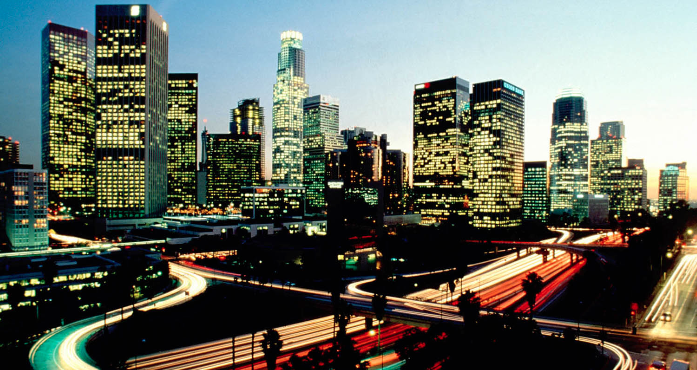
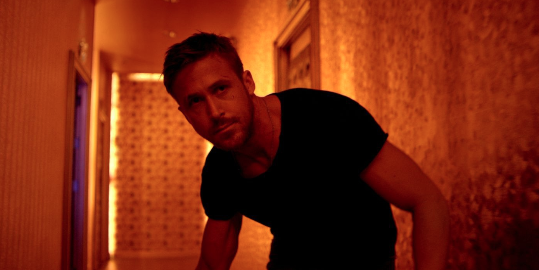
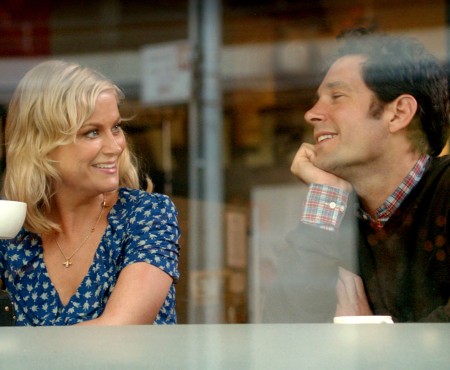
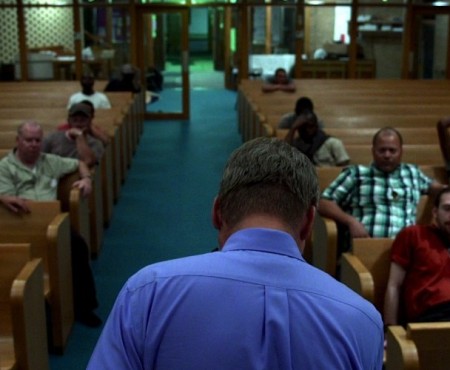
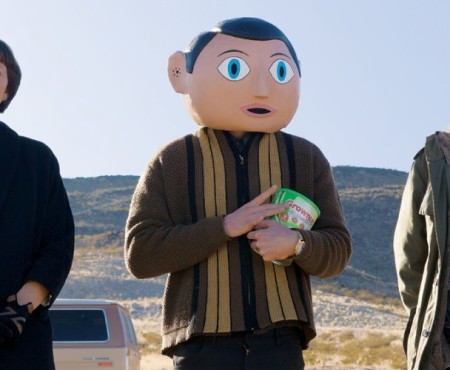
2 thoughts on “The Hainline Diaries: Recapping the 2013 Los Angeles Film Festival”
Heh I wasn’t disgruntled in the presence of Sidney Poitier. Disgruntled is just my default facial expression.
Pingback: Mini-Reviews: Fruitvale Station, Only God Forgives | The Password is Swordfish